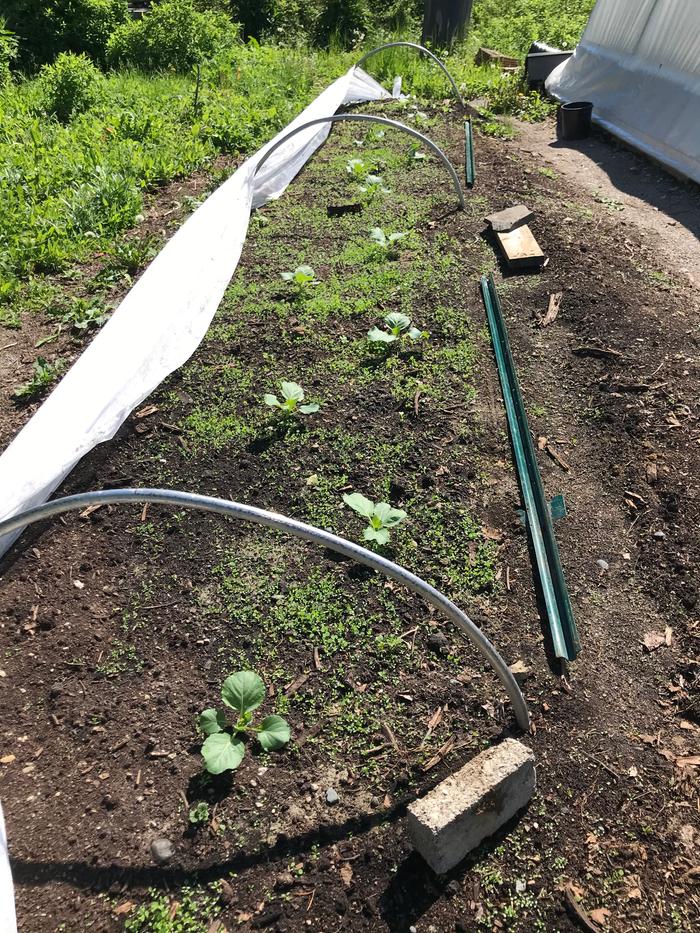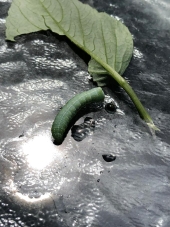It’s my first year in this location and I wanted to wait and see if cabbage moth was a big issue before I went to the trouble of row covering.
Oh boy are they an issue. It’s not really the end of the world, I hand pick off what I can while harvesting then soak and agitate a long time until no new caterpillars appear in the wash water. I’m also boiling my brocolli rather than steaming (or prior to stir frying) because that will sometimes coax a few more out. But all of this is energy intensive and annoying.
I don’t like to use sprays or pesticides, and am planning on a row cover for next years crop. That said, I read that the larva overwinter as well. My brassicas are spread everywhere and I don’t have a new spot to start them next year. I had planned to chop and drop the remaining brassicas in fall and leave them in their beds to break down. Now I’m thinking this is a bad idea. Should I put them in
compost, or maybe around my fruit trees? If they are badly infested, should I bury or burn them? What’s the best way to break the infestation cycle?
I assume even if some overwinter the damage will be greatly reduced with row cover to ensure no new cabbage moths can enter and lay eggs.
Also same question, but slugs. I am in the process of moving a bunch of hostas (the slugs preferred plants in my gardens) and using them as trap plants. I have diatomaceous earth but like to use it sparingly since it kills all my insect friends. These are different slugs than I’m used to by the way. Fully grown they are only about an inch. When they’re smaller they’re tedious to pick off, about the size of lentil or smaller. Garden slugs where I grew up were banana slugs- easy to spot, easy to pickup, big enough to be a household pet. So, how do you break the slug cycle?

 1
1











 1
1




 1
1

























